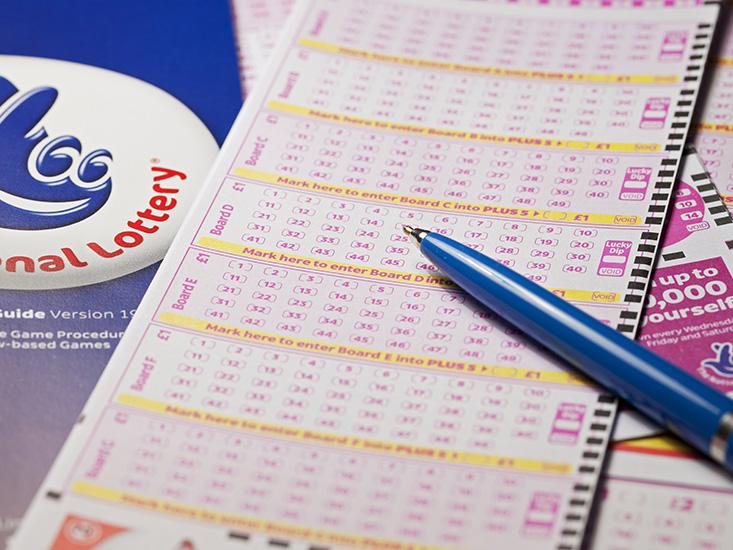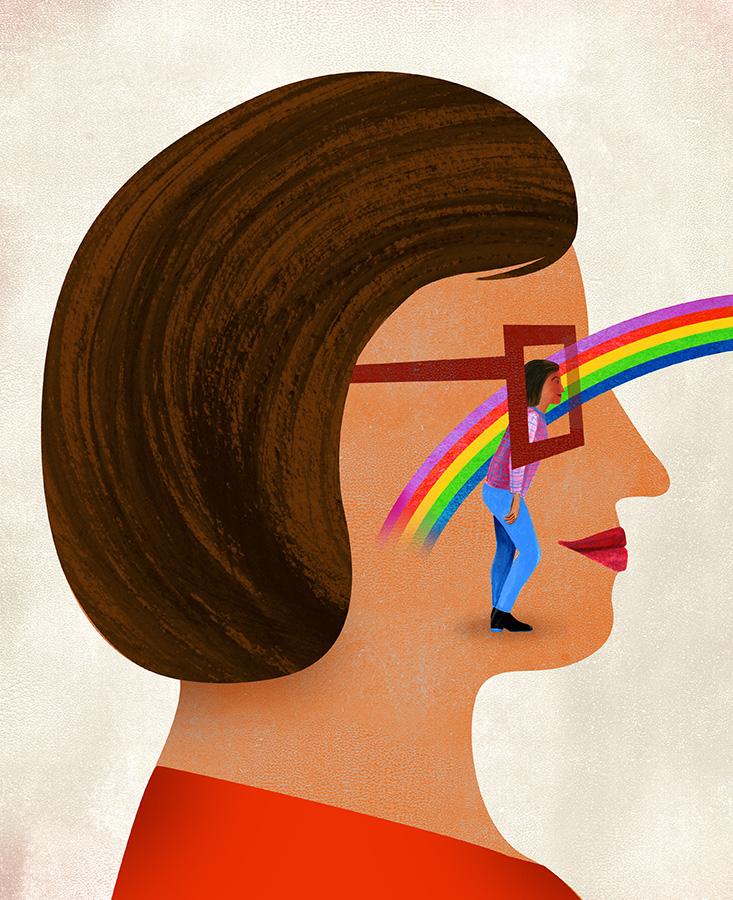Why you should not believe in luck

Do you consider yourself a lucky person? Have you had any surprises in life that made your life better? I do not mean big winnings in a lottery, but such things as a sudden candidate getting a job because of a disease of a stronger candidate, or a delayed train, which you yourself were late for?
Or maybe you consider yourself an unfortunate person? Did you miss the interview because of the flu, or didn’t get on the train because of its cancellation?
')
Or, perhaps, you do not believe in luck, and you think that a person does it or himself, and success in life depends on hard work and perseverance. Of course, even belief in such a variant of life does not fully explain it - no matter how hard you worked, you cannot return a canceled train. There are always things beyond your control.

Turk Wendell, a pitcher in the premier league from 1993 to 2004, was subject to more superstition than another shaman. In order to attract good luck, he wore a necklace of the teeth of animals that he defeated while hunting, and he drew three crosses on the ground.
Luck is closely related to the concept of randomness, but not identical to it. Accidents describe the characteristics of the physical universe: what happens. The coin fell with a tail, not an eagle, a six fell on a cube, won one of 45,057,474 tickets of the British national lottery. Luck also assigns value to chance. Luck is a case seen through the prism of luck or bad luck. It's good for you to win the lottery and it's bad to be a passenger of a fallen plane.
Therefore, chance is the objective reality of random events of the real world, and luck is the result of your issuing a subjective assessment of this random event. Good luck, it can be said, an accident with a human face. If you understand this, you can more accurately see the reality, and this will help you better plan your actions.
Luck is sought - luck means that random events will have positive results. Bad luck trying to avoid. Hence the question: can we make our life more fortunate?
To do this, you can try to change our ideas about what is a positive result - but it seems unreasonable. If you slipped and broke your leg, it can hardly be called a positive case, no matter how you twist it, and it’s just as difficult to see the failure to win the lottery. Perhaps, instead, it is necessary to explore ways to influence chance, the likelihood that the results will be obtained by others.
And the world is filled with beliefs that one can influence chance, and, as a result, good luck.
Examples are superstition. Baseball pitcher Turk Wendell drew three crosses on the ground. Football player from Manchester United Phil Jones first put on his left sock, if the team played at home, or right - if they played away. You may be taking your favorite pen for the exam. Unfortunately, there is not enough evidence that such actions increase the chances of a favorable outcome.
On the other hand, there is an old saying that is attributed to Thomas Jefferson and other people: “The harder I work, the happier I become.” And indeed, if you train hard, the likelihood that you will win in a sports competition will increase, but this does not explain everything. Hard work does not reduce the chances that noisy neighbors will not allow you to sleep before the competition, or that you will not slip on the wet part of the track during the race. And in the lottery, people win, regardless of the degree of dissolution of their lives.
Louis Pasteur said something similar: “Chance favors the prepared mind,” that is, you must recognize and seize the opportunity.
One of the training options is to take advantage of the law of really large numbers. This is not the same as the law of large numbers in statistics, describing how the average value gradually approaches a specific number with an increase in the number of values taken into account. This is something completely different.
Let's start with a truism: although you have little chance of winning the lottery when you buy a ticket, you have no chance of winning if you don’t buy a ticket. And between these chances there is quite a big difference - between something and nothing, despite the fact that this “something” is very small. But we can develop this idea. Obviously, the more different tickets you buy, the greater your chances of winning. Buy 1000 tickets, and you will increase your chances by 1000 times. Buy a million — indeed a large number — and increase them even more. I note that I do not urge you to buy lottery tickets. In the British state lottery, one ticket has 1 chance out of 45 million to become a winner. If you buy 1000 tickets, you will have 1 chance out of 45,000. This probability is less than the probability of one side throwing a coin 15 times in a row. Do you want to bet on such chances?
But this example shows that by increasing the number of opportunities for the occurrence of an unlikely event, we increase the chances that it will occur. In other words, if we give ourselves a lot of chances for the onset of some good event, we increase our chances of success. And it already becomes like the possibility of improving our luck.
We can go even further. If you have an extra £ 90 million (twice £ 45 million, because a lottery ticket costs £ 2), you can redeem all possible combinations of six numbers, from 1 to 59, and ensure that you get a winning ticket. This is a transition from the law of really large numbers to inevitability. Just one case from a set of all possible cases must happen. His attack is inevitable, since, by definition, nothing else is impossible.
Returning to the law of really big numbers, you can see that it does not apply only to the lottery, and the numbers do not always have to be that big.
Di Coke lives in British Brighton and won prizes worth more than £ 300,000 at various competitions. These include trips to rest abroad, a trip to the Brazilian Grand Prix, a trip to New Zealand, a car, five iPods, two computers, a ticket to the award ceremony of the British Film and Television Academy, and money. On average, she wins prizes worth more than £ 15,000 per year.
Here is a lucky woman, you think. But Di doesn't rely on the odds. She uses the law of really big numbers to increase her chances of winning. She participates in 400 competitions per week. She has little chance of winning any of them, but with so many competitions during the year the chance that she won nothing is extremely small. It almost guarantees a few winnings. She makes her luck herself.
Have you ever been jealous of an entrepreneur who sold his startup for millions? Ask yourself what was their first attempt? Did they continue to work, failing after failing, until they hit the jackpot?
What about vacancies? In the device to work there is always an element of chance. Who else has applied? Who are the employers looking for? Do all those who attended the interview agree? Perhaps the chances of getting a particular place are few, but if you continue to apply, you will increase your chances of receiving one of them.
The key point is to give the chance to give the result in your favor. Give yourself the opportunity to be lucky. If you have not responded to the vacancy, because you believe that you are not lucky, you definitely will not get a job. By increasing the chances of success, you create your own luck.
But Pasteur, speaking of a prepared mind, did not mean simply trying to do something until you were lucky. He also meant that he was ready to see the opportunity when it appears, and to see the relationships that are invisible to others. For employment, this is the same as for science. Prepare for an interview by studying what the employer wants to find, and you will increase the chances for success.
At a higher level, people who treat themselves as lucky are more friendly. And there is a simple relationship that works in both directions. More positive and friendly people are more open to new ideas, new people, new experiences, and thus they give themselves more opportunities for a positive event. They are more likely to be lucky. But a positive experience — knowing that good things happen — will better prepare a person to take risks while trying something new. And this leads to a cycle of self-empowerment.

We have already found out that luck is different from chance: it is an accident viewed through the prism of reason. This illustrates well the attitude of people towards accidents. People often describe as luck what an objective observer would rate as failure. Someone got into an accident, his car rolled over three times, but he climbed out of it without a single scratch, and now tells how lucky he was. Others may decide that he was initially unlucky to get into this accident. If a stone breaks off a cliff and misses you a little, you can say that you are very lucky that he missed, instead of complaining how lucky you are to be there. But do you think that you are lucky, or that you are not lucky, the probability of an event remains the same.
The fact that luck is a human concept, you begin to understand better when you experience a sequence of accidents, one after another. For example, the accumulative bet, in which you bet on a sequence of events, wins only if all the events from this sequence occur.
In August 2015, a Manchester United fan from Lichfield placed a rate of 30 pence on the sequence of results of 15 football matches, and won half a million pounds. And although his chances were almost equal to the chances of guessing the results of the first 14 matches and not guessing the 15th, we would say that he was very unlucky if he lost the last bet. In 2008, when Yorkshire Fred Crags made a 50-pence accumulative bet on eight horses in a row and watched them all win and earn him a million pound prize, we would describe him as unlucky if he guessed all the results except the last.
Not always everything goes according to plan. In general, rarely something goes exactly according to plan. Joe McGuire made an accumulating bet on six horses, and watched his gain of £ 10 million approach when five horses arrived, as he predicted, but the sixth did not. And in one of the reports, he was described as “the most unlucky British pteter”.
Imagine that we can guess the winner in any race with a probability of ½. That is, about half of the results will be true. Now imagine that you put on a battery of five steps. Then the chances of guessing correctly after the first step will be ½, the chances of winning after two ½ * ½ = 1/4, the chances of winning after three ½ * ½ * ½ = 1/8, and as a result, the chances of winning will be 1/32 in general.
Such an idea was used in fraud with the "prediction" of the securities market. We declare that we can predict market movements. In particular, we predict whether the market will go up or down next week. We make a list of 1024 people, and 512 of them send a letter with the message that prices will rise, and another 512 - a letter about falling prices. With one of the two groups, we guess, we discard the second. Next week, we are sending 256 people from the remaining group of 512 people with a prediction that prices will rise next week, and that the other half will fall. And again we will guess from one of two groups. We continue this procedure, discarding the group, the prediction for which turned out to be wrong, and after 10 weeks we will have one person who has received 10 correct predictions in a row. He knows nothing about 1023 other people. We send him a letter of the type: “You have seen how our algorithm works. Want a prediction for next week? Send us $ 10,000. "
This fraud uses the law of inevitability. For 10 steps, there are only 1024 possible combinations of falling and rising, so one of them will definitely fall out. It also uses the law of choice, saying that you can achieve any probabilities if you have the opportunity to choose after the occurrence of the event. It seems that step by step you choose one sequence of 10 correct predictions.

A less extreme option is possible in the legitimate market of investment advisors. Imagine a large crowd of such consultants, and with no real talent - that is, their predictions are random. We will follow their luck for 10 weeks. Every week about half of them will guess where the market will go, just by chance. You can say they are lucky. The chance that a particular consultant will guess the correct result for all 10 weeks is only 1/1024, since there are 1024 variants of events. But if you collect a sufficient number of such people, you can expect that someone happens to be right all 10 times. It turns out, investors will reach exactly to those analysts who are lucky to guess with the predictions. But in the future they will be disappointed, because their predictions will not be better than random ones.
Di Coke, who won in many competitions, also uses a variant of the law of choice, but not so extreme. She recommends, even if it sounds unreasonable, to focus on competitions where time and effort are needed. She claims that fewer people participate in such competitions, so the chance of winning increases. It makes sense. If you bring the idea to the limit, then in the case when only one participant gives the correct answer, it is he who will win. Therefore, she does not recommend participating in competitions where winning is random (such as lotteries). They are easy to get into, so many people play in them, and if there should be only one winner, they are much less likely to be.
Finding yourself in any situation, you can always look back and determine the sequence of events that led us there. If I didn’t grow up in that village, I wouldn’t meet a teacher who showed me that musical instrument, I wouldn’t play in that group, I wouldn’t meet a woman with whom we had a common interest in antiques, introduced me to the seller, who offered me a job “How successful it is,” we think, “that these events took place, and I found myself where I am right now.”
But it is not. Any position was preceded by a certain sequence of events that was supposed to happen exactly as they happened in order for us to find ourselves in this position. Such a sequence can always be found.
In general, everything happens. Randomness inherent in the world, comes on the scene and turns the events of one side or another in a random way. But we look at the results, associate them with our lives and interpret them differently. We say "I was lucky!", Or "I was not lucky!". Luck is our attempt to find meaning in a meaningless universe.
Source: https://habr.com/ru/post/373079/
All Articles